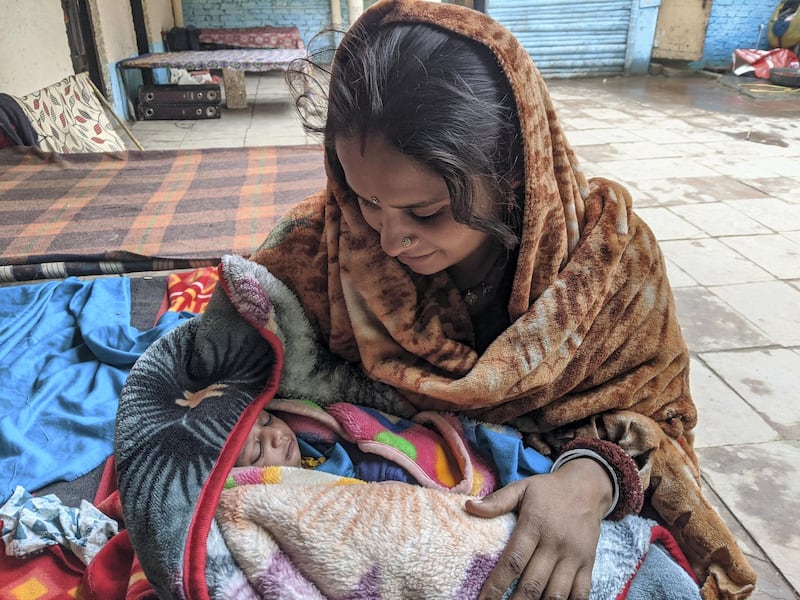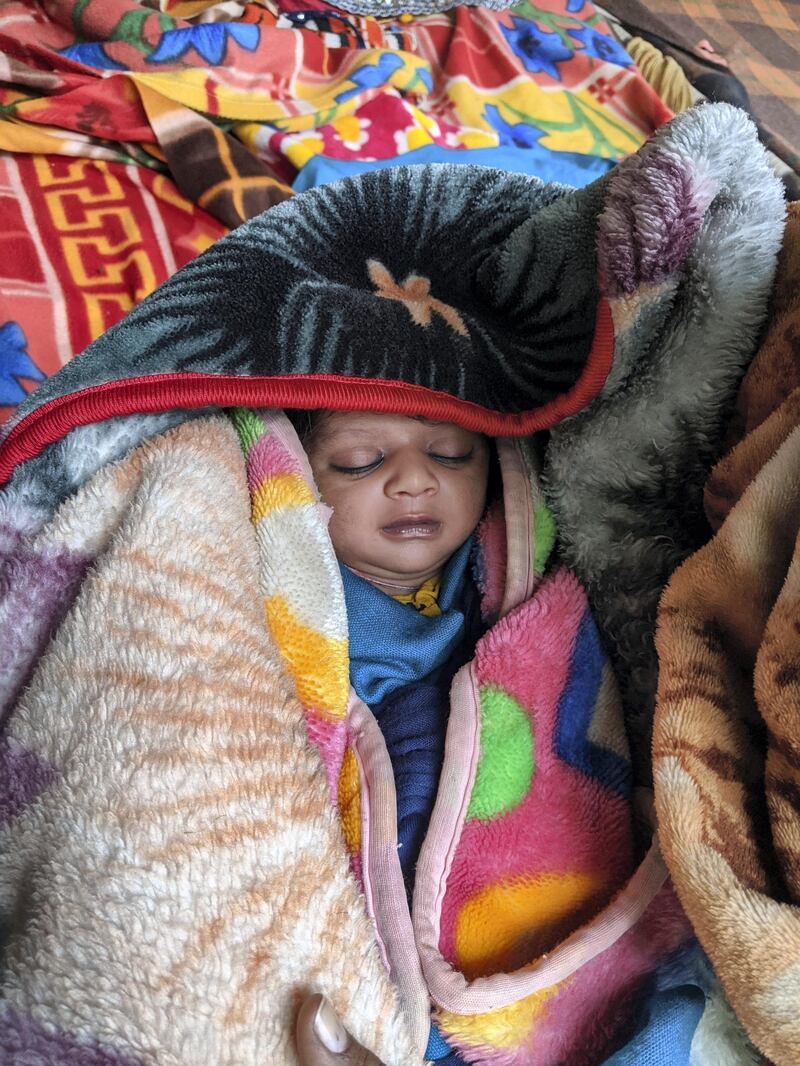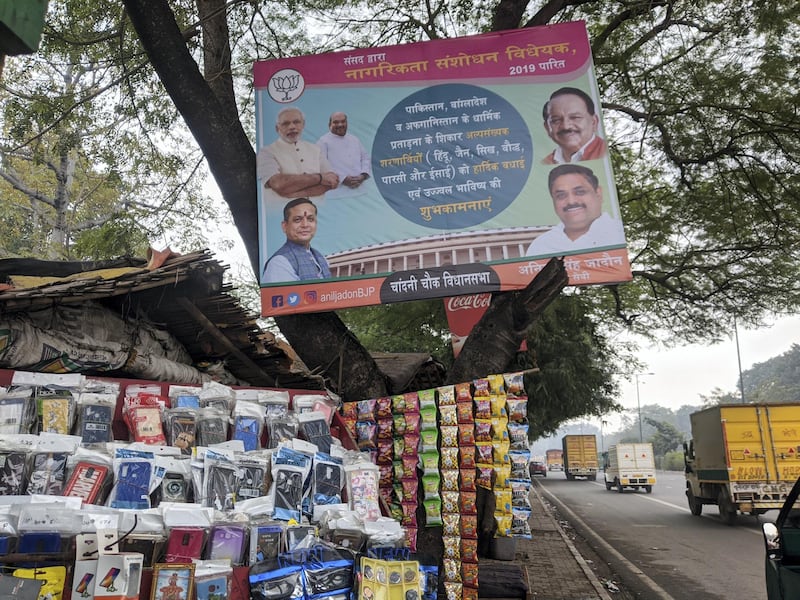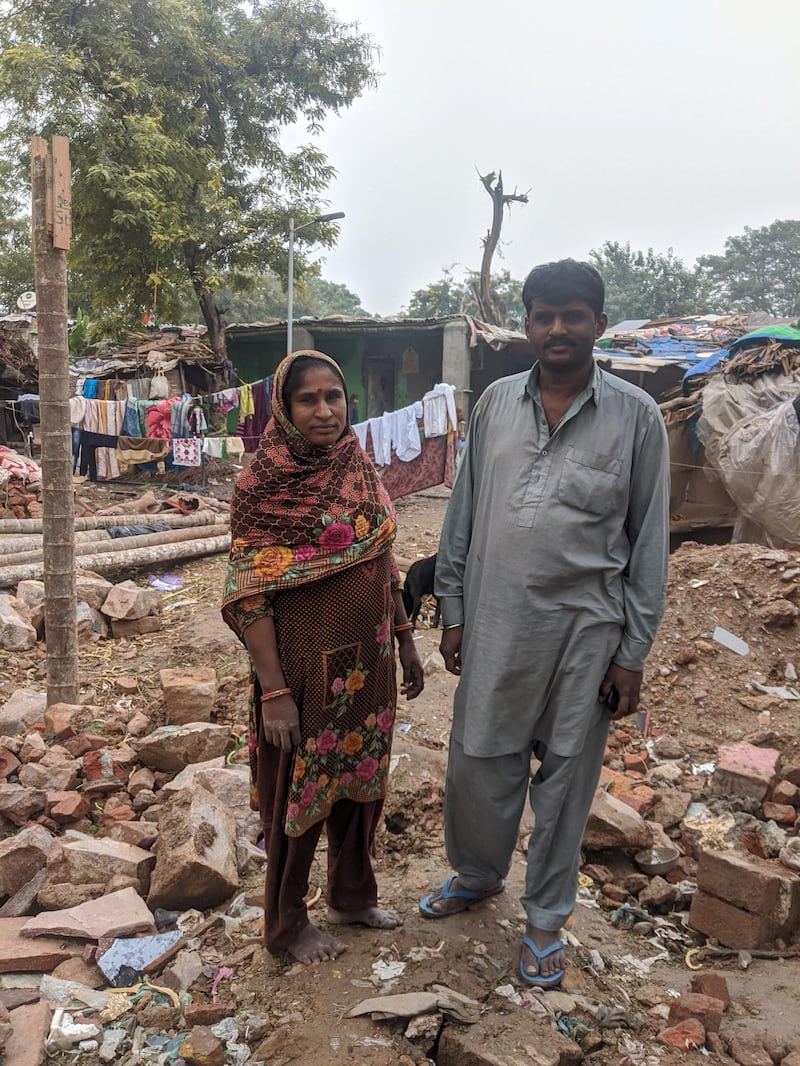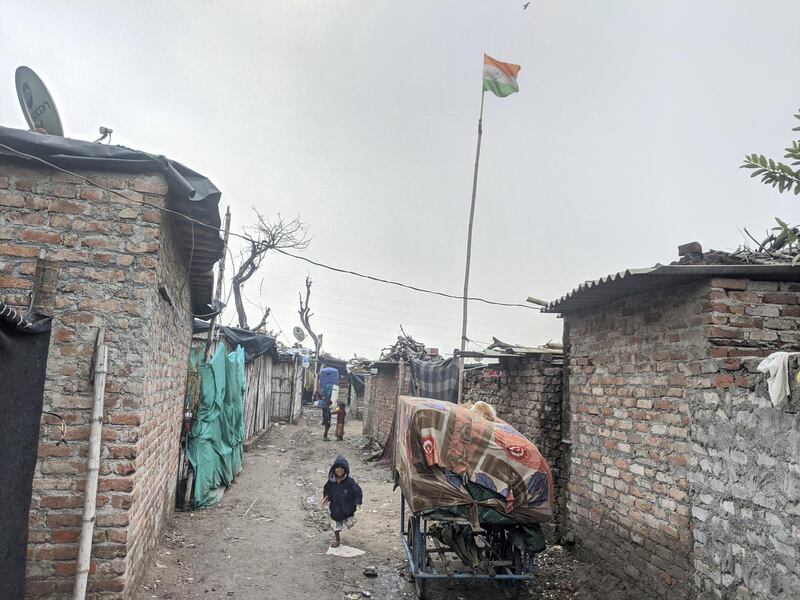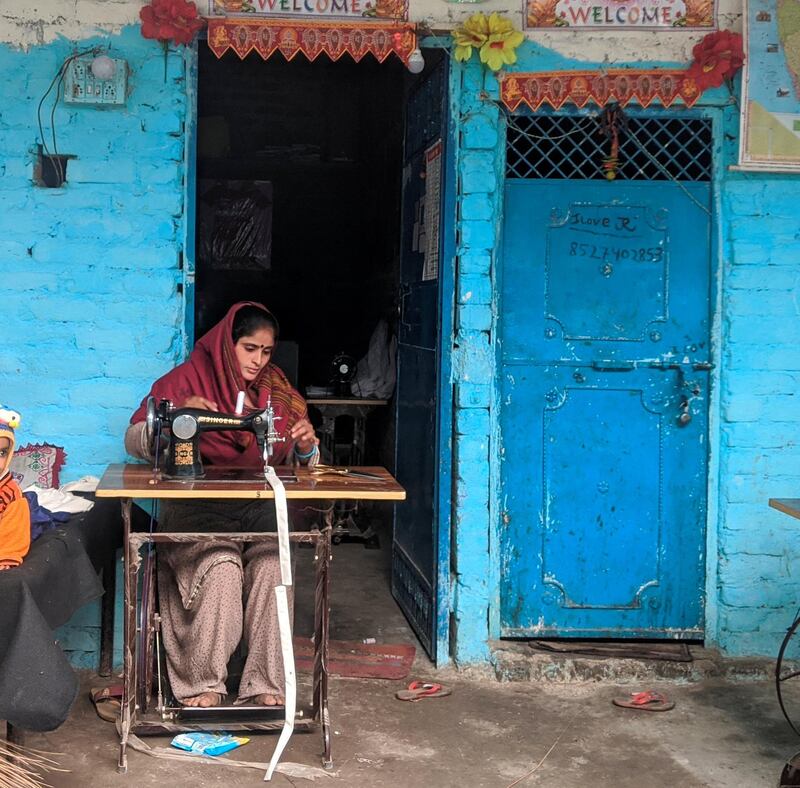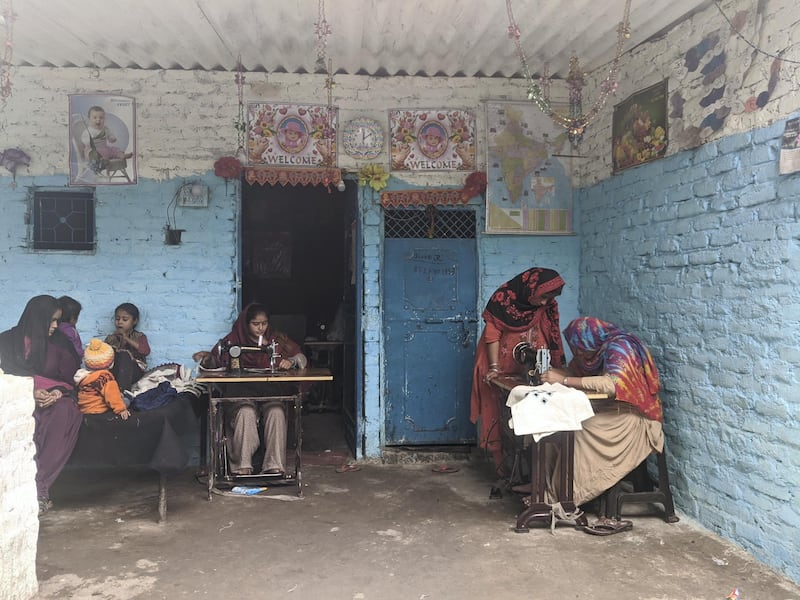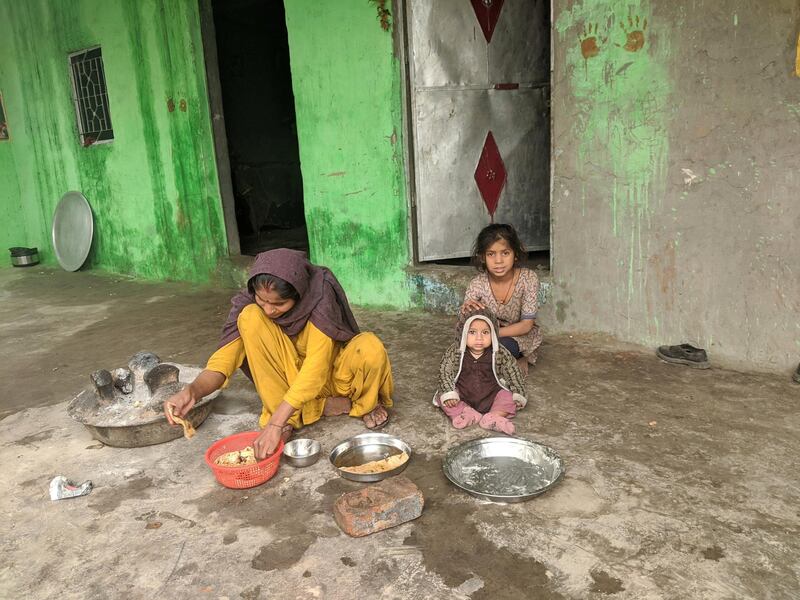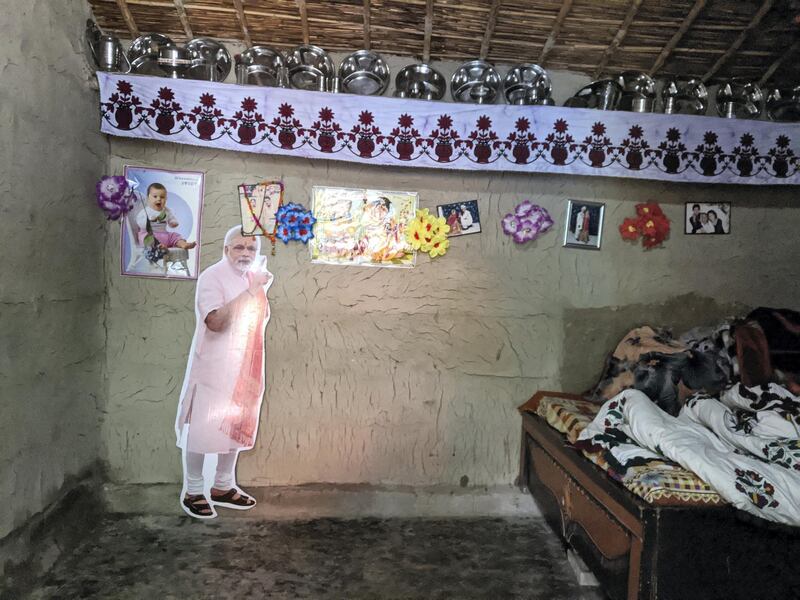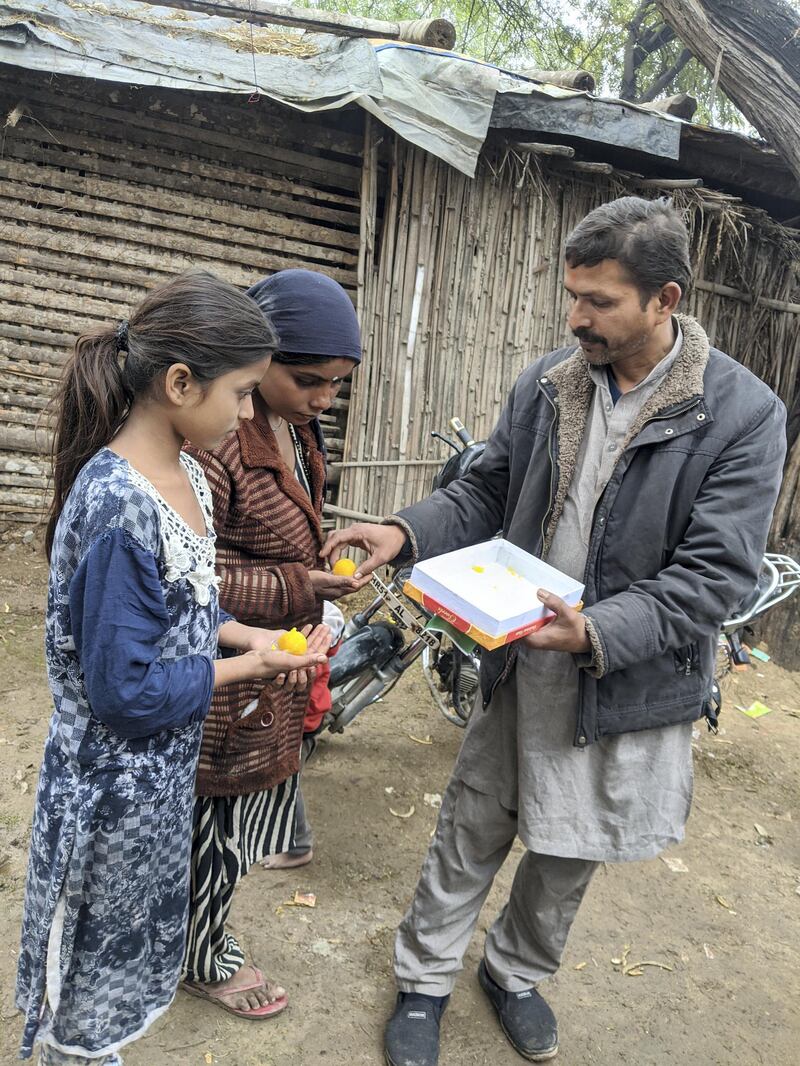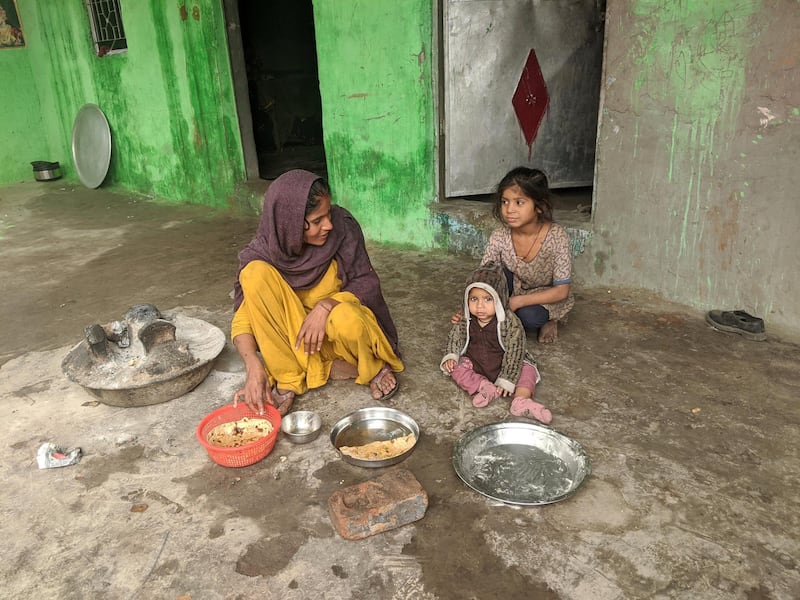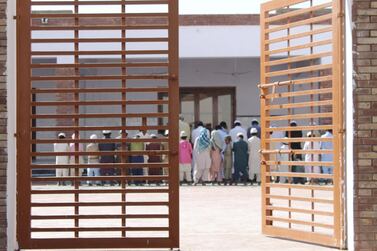Aarti Devi, 21, gazed at a life-size poster of Indian Prime Minister Narendra Modi that adorns the wall of her shack at a camp for Pakistani Hindus in New Delhi, as she rocked her newborn daughter.
Nagrikta – meaning citizenship in Hindi – was named in tribute to India's newest piece of legislation, the Citizenship Amendment Act.
The legislation allows persecuted Hindus, Sikhs, Buddhists, Jains, Parsees and Christians who arrived in the country from Muslim-majority Pakistan, Afghanistan and Bangladesh before 2015 to receive Indian citizenship without any documentation.
The same rights will not be afforded to Muslims, however.
"When I learnt [Prime Minister Narendra] Modi is giving us Indian citizenship, I was so happy that I named my daughter Nagrikta," said Ms Devi, who gave birth to her second child just two days before the contentious legislation was passed by India's parliament.
"I am Hindu and my heart always belonged here. Now, I will become an Indian citizen. It has only become possible because of Modi.”
There is no government data on the number of Pakistani Hindu migrants in India but news sources estimate the number living in makeshift camps in Rajasthan, Gujarat and Delhi to be in the tens of thousands.
"In Jodhpur, Rajasthan there are 25,000 Pakistani Hindu migrants but they are also in Gujarat, Chhatisgarh, Madhya Pradesh and New Delhi," said Hindu Singh Sodha, an activist working for Pakistani refugees in India.
"There are estimated to be between 40,000 and 50,000 migrants who crossed the border and will benefit from the legislation."
Pakistani Prime Minister Imran Khan strongly criticised Mr Modi for excluding Muslim migrants from the legislation.
"India, under Modi, has been moving systematically with its Hindu supremacist agenda," Mr Khan said.
Muslims are a minority religious community in India, making up 172 million of the country's 1.2 billion people.
Since 2014, when Mr Modi came to power, there has been a rise in attacks on Muslims.
According to Hate Crime Watch, a database that tracks such crimes, said 91 per cent of hate crimes motivated by religious bias recorded between January 2009 and April 30, 2019, took place in the past five years, after Mr Modi and his Bharatiya Janata Party came to power.
Hundreds of Assamese and Indian Muslims protested against the Citizenship Amendment Act at Delhi's Jantar Mantar on Saturday.
They carried posters showing the preamble of India's constitution and placards that read "Justice", "Save Assam", "Withdraw CAA" and "Assam Rejects CAA".
Muslim demonstrators waved the national flag and sang patriotic songs by revolutionaries of the country who participated in India's freedom struggle.
"This is not just a protest, this is our fight for protecting our culture, identity and language. For 40 years, Assamese have taken the burden of illegal Bangladeshi migrants. Now this government wants to make them all citizens of the country. We will become [a] minority in our own land," said Bhaskar, a consultant at a private firm.
"They are saying they will given citizenship to people who have come from other countries but they have excluded Muslims. Why? This law is unconstitutional and against the secular fabric of our country," said Imran, a student of Delhi University.
President Ramnath Kovind signed the bill into law on Thursday evening, amid violent protests in several parts of the country, including four deaths that claimed the lives of four people – including two teenagers killed by police in north-eastern Assam state where students unions protested against the act.
But the camp in Majnu Ka Tilla, near a Tibetan refugee settlement in the capital city, hundreds of Pakistani Hindus celebrated as they distributed sweets, waved Indian flags, danced and sang patriotic Indian songs.
"It is like a dream come true. We had never thought that one day we will become Indian citizens," said Daulat Ram, another migrant at the camp where Ms Devi resides.
About 600 Hindus from Hyderabad, in Pakistan's Sindh province, came to Delhi with valid pilgrimage visas over the past decade but never returned, fearing persecution in their countries.
More than 15 million people were uprooted following India's independence from Britain in 1947, which sparked months of violence during which at least a million people were killed for their faith.
Despite the exodus, Hindus remain one of Pakistan's largest religious minorities, making up around 1.6 per cent of the population. About 90 per cent of the country's eight million Hindus in the Muslim-majority country live in Sindh province.
But migrants at the camp said Hindus face discrimination, forced conversions and pressure to study Urdu and read the Quran.
Daulat Ram, 40, crossed the border in 2013 after allegedly facing pressure from Muslim clerics to convert to Islam.
He worked in the fields in Pakistan but left his mother and five siblings behind for the future of his children.
Earlier this year, a video emerged of two Hindu sisters from Sindh Province accepting conversion to Islam and marrying Muslim men that led to riots in the province. In September, the All-Pakistan Hindu Panchayat, a non-profit organisation, claimed another Hindu girl was allegedly abducted and converted to Islam in the province.
"These people have suffered a lot in Pakistan. They were persecuted there. They couldn't celebrate their festivals and were forced to convert to Islam. Now they have a shelter and confidence to practice their religion in India,” Sandeep Gupta, an activist at Nyay Path, an NGO for impoverished children, said.
“Life was tough in Pakistan. They never treated us equally. We worked on fields for Muslim landowners but they never paid us full wages,” Mr Ram said.
“There was no work opportunity for us, as Muslims would get all the jobs, even the educated Hindus would not get work.”
Mr Ram claims his community were forced to celebrate Hindu festivals in secret and his children were forced to study Urdu at school.
"Now my kids can happily live as Hindus and openly celebrate our festivals," the father of seven said.
The Hindu migrants came in large clusters, first arriving in New Delhi in 2011 followed by waves of relatives and acquaintances over the next nine years.
They renewed their visas after every five years in the hope of eventually becoming Indian citizens.
But life in India has not been easy.
After spending the first night camping on the side of the road in Delhi’s bone-chilling winter, the migrants were moved by Hindu groups to a makeshift camp in Majnu Ka Tilla on the floodplains of Yamuna river, where they continue to languish in abysmal conditions.
About 150 families live in tiny shanties with no electricity or running water, meaning people depend on government water tankers twice a day for all their needs.
All the families share just six toilets between them.
During monsoon season, floods make the camp uninhabitable.
Most of the families at the camp are from underprivileged Hindus who worked as farmers, fruit sellers or blacksmiths in Pakistan.
But after crossing the border, they were left with no work opportunities as they had no education or valid documents.
With help from local non-profits, the men now sell mobile phone covers, tea and biscuits in carts and kiosks, bringing home $5 (Dh18.36) a day while women sew to support their families.
"We are happy that we are where we belong, but we are living from hand to mouth. The main occupation of most people here is farming. We hope that the government provides us land on lease or instalments for cultivation of crops," said Ravi Das, a teacher who taught Hindi and English to children in his community in Pakistan.
